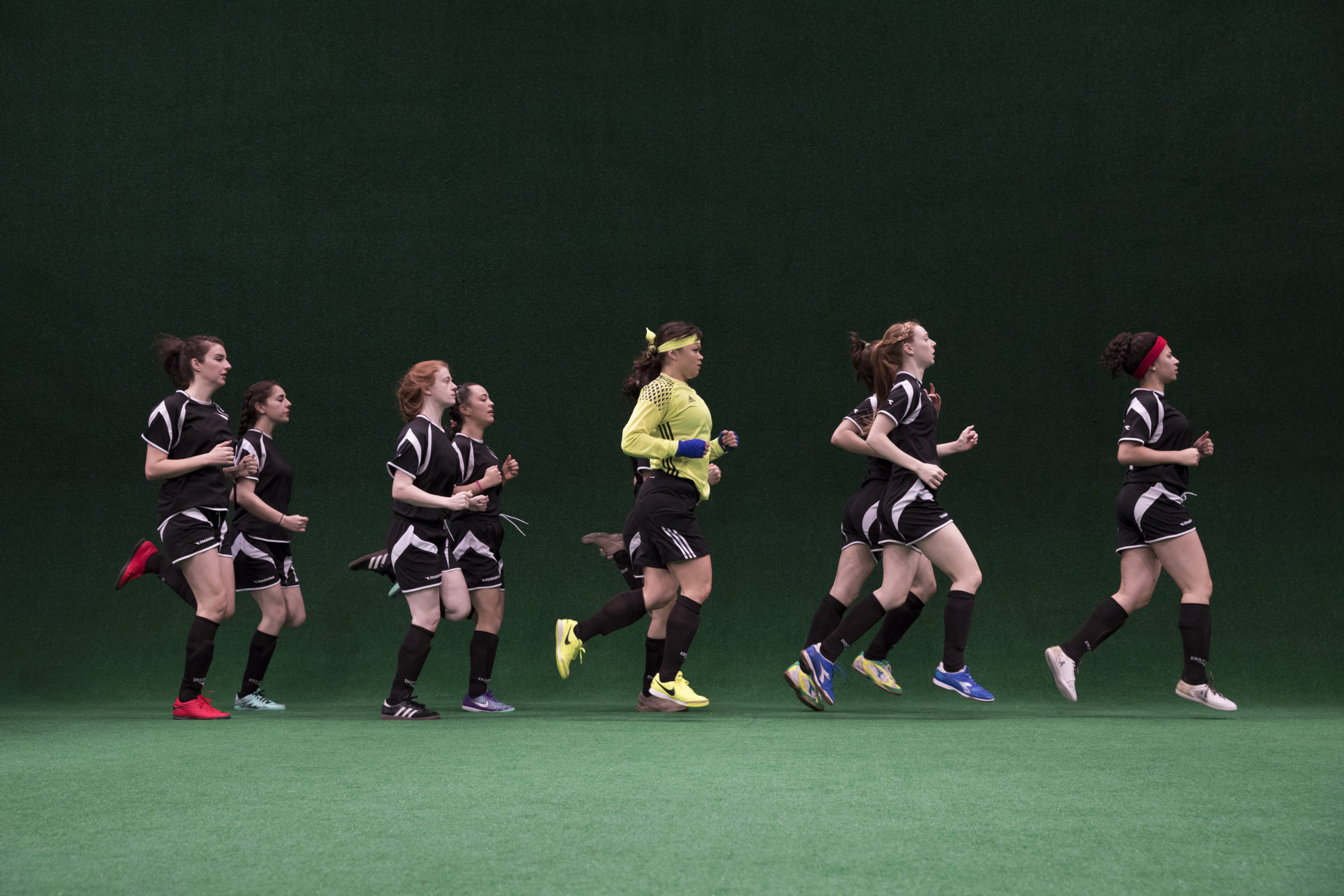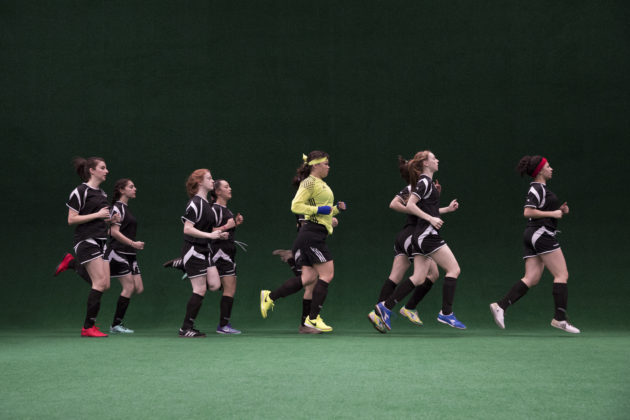
Your Jewish and Frankly Feminist Review of “The Wolves”
Sarah DeLappe’s first produced play has the ring of truth about the way teenagers talk and think. She’s 27, pretty close in age to the 16- and 17-year-olds she writes about. Her drama became a finalist for the Pulitzer Prize following a highly-praised production at a smaller Off-Broadway theater last year. I believe—or want to believe—that educated girls these days at least know about Nazism and condemn it whole-heartedly.
I can also well imagine that they might intersperse their talk with lines that drew laughter from the generally older Lincoln Center audience. We were transported to our youth and chuckled—perhaps with some embarrassment—in recognition of how misguided, wrong-headed and sometimes cruel we used to be—and maybe still are, though now in more veiled ways.
To explain her ignorance about Cambodia, one girl volunteers that, at her school, “we don’t do genocides til senior year.”
Later, after someone mentions seeing a documentary about snake handling, another girl asks, “Why would you watch a documentary?”
I haven’t even mentioned yet that during each scene, all of them set during a pre-game warm-up session, the girls are almost constantly exercising. In unison, they prance across the stage, which is covered in an artificial green turf, while raising their knees high or kicking their legs behind them. They twist their bodies into pretzels as they do their choreographed stretches, also in unison. And they don’t even seem to breathe harder as they do any of it. Kudos to the ensemble of young actors who, judging from their credits, are no longer teens. They are uniformly good.

Photo credit: Julieta Cervantes.
The person orchestrating all this exhilarating action and adrenalin-fueled pacing is the accomplished director Lila Neugebauer, who says in a Lincoln Center Theater blog essay profiling her that she was captain of her high school’s varsity soccer team and of a travel team. She also notes that she is “the child of a psychotherapist, so human behavior was relentlessly discussed in our apartment.” In a recent interview with the Yiddish Forverts, translated into English in the Forward, she talked about the inspiration she draws from the life and work of her grandfather Maye Rak, a former Forverts news correspondent who died in 2004.
Though it may have nothing to do with her Jewish upbringing, her staging is sensitive to the various ethnic backgrounds of the girls on the soccer team. No one is a stereotype, which DeLappe’s writing underscores, too.
The girls also don’t seem to harbor religious prejudices, though they are aware of differences. In one passage, a team member talks about a girl who isn’t playing soccer because she has opted to be in the school play (two words she says in a sneering way, indicating she doesn’t think theater is as high a calling as soccer). “She plays like an old German guy a watchmaker or something,” the team member says. “Isn’t she like Jewish?” asks another. They are puzzled by the Jewish girl’s choice and somewhat aghast.
The girls are identified only by the numbers on their jerseys, but they are definitely individuals with different strengths, weaknesses and personalities, none of them yet fully formed. They are still trying things out. A lot of what they say to each other is scattered and off-hand, including insults, jokes and inadvertent humor (like mistakenly calling a portapotty a portaparty, or thinking that a new girl on the team lives in a yogurt, which turns out to be a yurt). And yet they are also forming bonds with each other. They’re a team. And they are often as ferocious as their team name, the Wolves.
It is truly delightful to find a play that is about young women who are interested in the wide world, in their sport and in each other. Among the few males they even allude to are their coach, who they agree may be a “creep,” and a boy named Chris who, one girl complains, “made fun of my calf muscles and tried to stick his hand down my shirt.” They are much more interested in whether college scouts are coming to see them play and whether they can beat their rivals, the Hornets.
Only one other character appears, late in the play, after a sudden tragedy disrupts their lives. She is identified as Soccer Mom, and she indirectly helps to push the members back into action. In the final words of the play, the team loudly repeats their pre-game chant, “WE ARE THE WOLVES.” What this means about how they will live the rest of their lives is unclear. But I’d like to think they will continue to be as powerful as their namesake.
The views and opinions expressed in this article are the author’s own and do not necessarily reflect those of Lilith Magazine.



